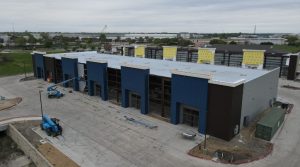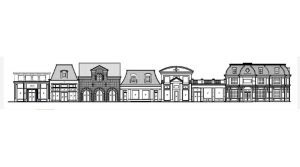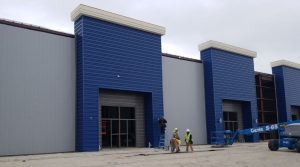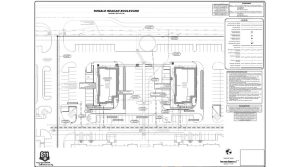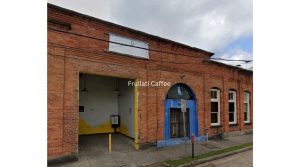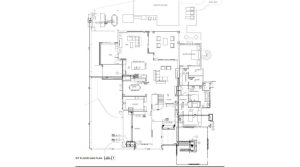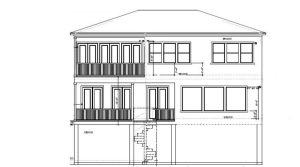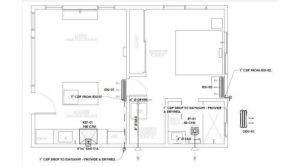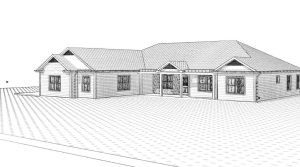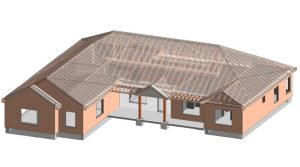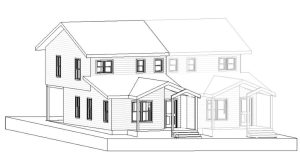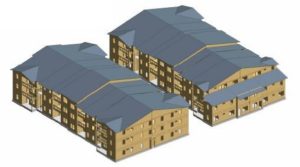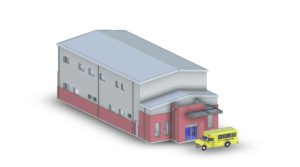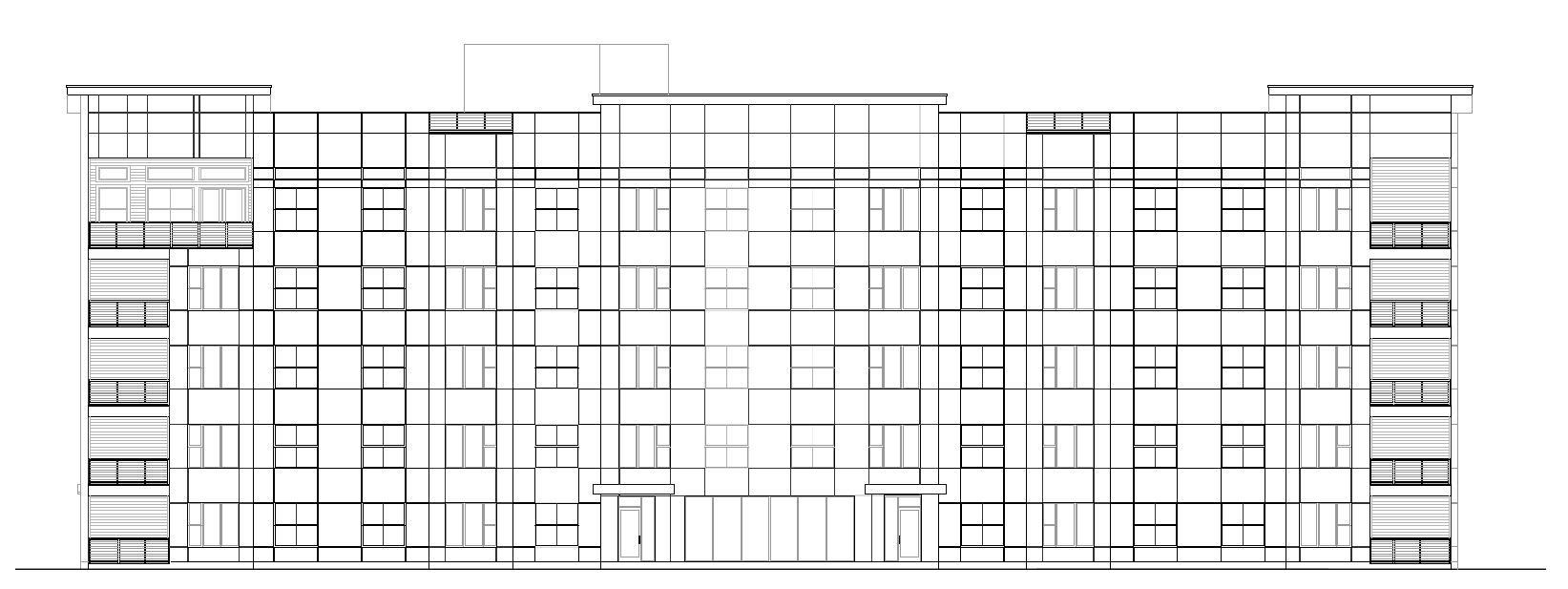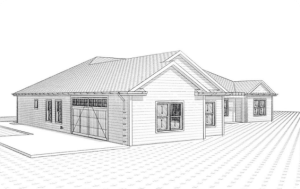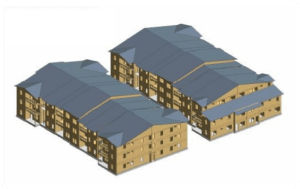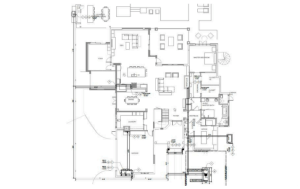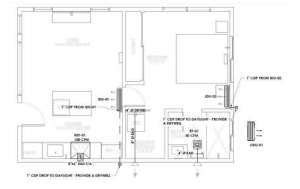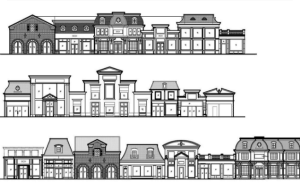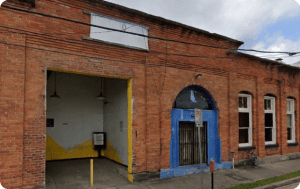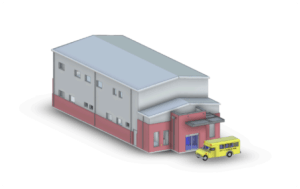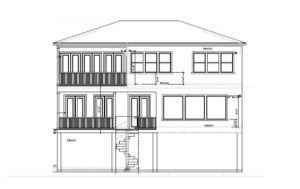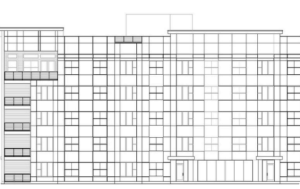Unveiling the Crucial Role of MEP Consultants in Building Design and Construction
Building design and construction have been one of the most critical industries in the world today. With the global population growing at an alarming rate, new structures are being built every day to accommodate the ever-increasing population. However, building design and construction are not just about putting up structures. It involves many different aspects that must be considered to ensure the safety and longevity of the structure. One of the most crucial aspects of building design and construction is MEP (Mechanical, Electrical and Plumbing) engineering. MEP consultants play a crucial role in ensuring the safety and success of the project. In this post, we will delve deeper into the role of MEP consultants in building design and construction, how they work with the architects, and the benefits of hiring one for your next project.
1. Introduction to MEP consulting and its role in building design
Introduction to MEP consulting and its role in building design
When it comes to designing and constructing buildings, the role of MEP (Mechanical, Electrical, and Plumbing) consultants cannot be overstated. These professionals play a crucial role in ensuring that buildings are safe, functional, and efficient in terms of their mechanical, electrical, and plumbing systems.
MEP consultants are experts in their field, specializing in the design and implementation of these vital building systems. They work closely with architects, engineers, and contractors to develop comprehensive plans that integrate the MEP systems seamlessly into the overall design.
Mechanical systems encompass heating, ventilation, and air conditioning (HVAC) systems, which are essential for maintaining a comfortable and healthy indoor environment. Electrical systems include power distribution, lighting, and fire protection systems, ensuring that buildings have a reliable and efficient supply of electricity. Plumbing systems involve the design and installation of water supply, drainage, and sewage systems, ensuring access to clean water and proper waste management.
The role of MEP consultants goes beyond just designing these systems. They also evaluate and recommend suitable equipment and technologies, considering factors such as energy efficiency, sustainability, and compliance with building codes and regulations. By collaborating with other professionals involved in the project, MEP consultants ensure that the building’s MEP systems are well-integrated with the architectural and structural elements, optimizing space utilization and functionality.
In addition, MEP consultants play a vital role in ensuring the safety and well-being of occupants. They assess and mitigate potential risks associated with MEP systems, such as fire hazards, electrical faults, and indoor air quality issues. By adhering to industry standards and best practices, they contribute to creating a safe and comfortable environment for building occupants.
In conclusion, MEP consulting is an indispensable aspect of building design and construction. These consultants bring their expertise and knowledge to bear on the design, implementation, and maintenance of the mechanical, electrical, and plumbing systems that are vital for the functionality, efficiency, and safety of buildings. Their role is crucial in ensuring that buildings meet the needs of occupants, comply with regulations, and contribute to a sustainable and comfortable built environment.
2. Understanding the acronym: What does MEP stand for?
Before diving into the crucial role of MEP consultants in building design and construction, it’s important to understand what the acronym MEP stands for. MEP stands for Mechanical, Electrical, and Plumbing. These three disciplines are fundamental components of any building project and are essential for the functionality, comfort, and safety of the occupants.
Mechanical systems refer to the HVAC (Heating, Ventilation, and Air Conditioning) systems that regulate the indoor climate, ensuring proper airflow, temperature control, and ventilation. This includes the design and installation of heating and cooling equipment, ductwork, and controls.
Electrical systems encompass the entire electrical infrastructure of a building, from power distribution to lighting design. MEP consultants work on designing efficient electrical layouts, specifying wiring systems, circuitry, outlets, and switches, and ensuring compliance with electrical codes and safety regulations.
Plumbing systems involve the supply and distribution of water, as well as the disposal of wastewater. MEP consultants play a crucial role in designing plumbing systems that provide clean water for various purposes, such as drinking, sanitation, and fire protection. They also design drainage systems to efficiently remove wastewater, including the installation of pipes, fixtures, and fittings.
In summary, MEP consultants are responsible for integrating these three essential disciplines into the overall building design and construction process. Their expertise ensures that buildings are equipped with efficient, functional, and safe mechanical, electrical, and plumbing systems, ultimately contributing to the overall success and sustainability of the project.
3. The importance of MEP consultants in the construction industry
The construction industry is a complex and intricate field that requires careful planning, coordination, and execution. One crucial aspect of any construction project is the integration of mechanical, electrical, and plumbing (MEP) systems. These systems are essential for the functionality, efficiency, and safety of buildings. This is where the expertise of MEP consultants comes into play.
MEP consultants are professionals who specialize in the design, installation, and maintenance of MEP systems in buildings. They possess a deep understanding of the technical aspects and requirements of these systems, as well as the applicable codes and regulations. Their role is to ensure that all MEP systems are seamlessly integrated into the overall design and construction process.
One of the primary reasons why MEP consultants are essential in the construction industry is their ability to optimize the performance of MEP systems. By carefully analyzing the project requirements and collaborating with architects, engineers, and contractors, they can design MEP systems that are energy-efficient, cost-effective, and environmentally sustainable. This optimization not only benefits the building owner in terms of reduced operational costs but also contributes to a greener and more sustainable future.
MEP consultants also play a crucial role in ensuring the safety and compliance of buildings. They are responsible for conducting thorough inspections, tests, and evaluations to verify that all MEP systems meet the necessary standards and regulations. This includes assessing the fire protection systems, electrical wiring, HVAC systems, and plumbing installations, among others. By adhering to these strict guidelines, MEP consultants help to create buildings that are safe, comfortable, and compliant with local and international building codes.
Furthermore, the expertise of MEP consultants extends beyond the initial design and construction phase. They are often involved in the ongoing maintenance and operation of MEP systems, providing valuable guidance and support to building owners and facility managers. This includes conducting regular inspections, performing system audits, and recommending necessary upgrades or repairs. Their proactive approach ensures the longevity and reliability of MEP systems, minimizing downtime and maximizing the lifespan of building assets.
In conclusion, the importance of MEP consultants in the construction industry cannot be overstated. Their specialized knowledge and expertise contribute to the successful integration of MEP systems in building design and construction. From optimizing performance and ensuring compliance to promoting energy efficiency and sustainability, MEP consultants play a crucial role in shaping the future of the built environment.
4. The scope of work for MEP consultants
The scope of work for MEP (Mechanical, Electrical, and Plumbing) consultants is extensive and plays a crucial role in the successful design and construction of buildings. These specialized professionals are responsible for ensuring that the mechanical, electrical, and plumbing systems of a building are designed, installed, and maintained efficiently and in compliance with industry standards and regulations.
One of the primary responsibilities of MEP consultants is to collaborate closely with architects and other design professionals to integrate the MEP systems seamlessly into the overall building design. This involves conducting comprehensive assessments of the project requirements, analyzing the building’s spatial constraints, and developing customized solutions that optimize energy efficiency, occupant comfort, and functionality.
In terms of mechanical systems, MEP consultants are tasked with designing heating, ventilation, and air conditioning (HVAC) systems that provide the appropriate thermal comfort and indoor air quality for the building occupants. They consider factors such as load calculations, air distribution, equipment selection, and control systems to ensure optimal performance and energy efficiency.
Electrical systems also fall within the domain of MEP consultants. They are responsible for designing electrical power distribution systems, lighting systems, emergency backup systems, and telecommunications infrastructure. Their expertise ensures that the building has a reliable and safe electrical supply, efficient lighting solutions, and adequate provisions for technology integration.
Additionally, plumbing systems are a vital aspect of MEP consultants’ scope of work. They design plumbing systems that deliver potable water to the building, manage wastewater disposal, and incorporate systems for fire protection. These systems must adhere to plumbing codes and regulations while considering factors such as water conservation, pipe sizing, fixture selection, and drainage requirements.
Furthermore, MEP consultants are involved in construction administration, where they provide oversight during the installation of MEP systems, perform site visits and inspections, and address any issues that may arise. They work closely with contractors, ensuring that the systems are installed correctly and functioning as intended.
In summary, the scope of work for MEP consultants encompasses a wide range of responsibilities, from collaborating on the initial design phase to overseeing the installation and maintenance of crucial building systems. Their expertise is indispensable in creating functional, sustainable, and safe buildings that meet the needs of their occupants.
5. Collaborating with architects and engineers in the design phase
When it comes to building design and construction, collaboration is key. Architects and engineers play a vital role in bringing a project to life, but there is another crucial player in the mix – the MEP (Mechanical, Electrical, and Plumbing) consultant.
MEP consultants work hand in hand with architects and engineers during the design phase to ensure that the building’s mechanical, electrical, and plumbing systems are seamlessly integrated into the overall design. Their expertise lies in optimizing the functionality, efficiency, and sustainability of these systems.
During the initial design discussions, MEP consultants provide valuable input on the placement and layout of mechanical equipment, electrical systems, and plumbing infrastructure. They consider factors such as space requirements, energy efficiency, safety codes, and the overall functionality of the building.
By collaborating closely with architects and engineers, MEP consultants help to identify potential conflicts or design limitations early on. This proactive approach allows for timely adjustments and modifications to be made, preventing costly and time-consuming issues during the construction phase.
Furthermore, the collaboration between MEP consultants, architects, and engineers fosters a holistic design approach where all systems work together harmoniously. For example, the placement of HVAC systems can impact the placement of electrical components, and plumbing infrastructure must align with the architectural layout of the building.
MEP consultants also play a crucial role in ensuring that the design meets all relevant building codes and regulations. They stay up to date with industry standards and local requirements, ensuring compliance and minimizing the risk of future complications.
In summary, collaborating with architects and engineers during the design phase is essential, and MEP consultants bring specialized knowledge and expertise to the table. Their involvement ensures that the mechanical, electrical, and plumbing systems are seamlessly integrated, optimized for efficiency, and compliant with regulations. By working together from the early stages, the design and construction process can be smoother, more efficient, and result in a high-quality building that meets the needs of its occupants.
6. Conducting feasibility studies and energy audits
One of the crucial roles of MEP (Mechanical, Electrical, and Plumbing) consultants in building design and construction is conducting feasibility studies and energy audits. These studies and audits play a vital role in ensuring the efficiency and sustainability of a building.
Feasibility studies are conducted in the early stages of a project to assess the viability and potential challenges associated with the proposed design. MEP consultants evaluate various factors such as site conditions, project requirements, budget constraints, and local regulations to determine the feasibility of the design. This helps in identifying any potential issues or limitations that may arise during the construction phase, allowing for necessary adjustments or alternative solutions to be incorporated into the design.
Energy audits, on the other hand, are conducted to evaluate the energy consumption and efficiency of a building. MEP consultants analyze the building’s energy systems, including HVAC (Heating, Ventilation, and Air Conditioning) systems, lighting, and electrical systems, to identify areas of improvement and potential energy-saving measures. This includes assessing insulation, energy-efficient equipment, lighting controls, and renewable energy options. By conducting energy audits, MEP consultants can provide recommendations on optimizing energy usage, reducing operational costs, and improving the overall sustainability of the building.
Through feasibility studies and energy audits, MEP consultants play a crucial role in ensuring that building designs are not only functional and aesthetically pleasing but also environmentally friendly and cost-effective. By incorporating sustainable design principles and energy-efficient solutions, they contribute to the creation of buildings that are efficient, comfortable, and environmentally responsible.
7. Designing efficient HVAC systems
Designing efficient HVAC systems is a crucial aspect of any building design and construction project, and it is a task that requires the expertise of MEP (Mechanical, Electrical, and Plumbing) consultants. HVAC (Heating, Ventilation, and Air Conditioning) systems play a vital role in maintaining a comfortable and healthy indoor environment for occupants, while also ensuring energy efficiency and cost-effectiveness.
MEP consultants are responsible for analyzing the building’s requirements, conducting thorough assessments, and developing HVAC designs that meet the specific needs of the project. They consider factors such as the building’s size, purpose, occupancy, geographical location, and environmental conditions to determine the most efficient and sustainable HVAC solutions.
Efficiency is a key consideration in HVAC design, as it directly impacts energy consumption and operational costs. MEP consultants employ various strategies to enhance energy efficiency, such as selecting the appropriate equipment, optimizing system layouts, utilizing renewable energy sources, and implementing advanced control systems. By designing systems that minimize energy waste and maximize performance, they help in reducing a building’s carbon footprint and promoting sustainability.
In addition to energy efficiency, MEP consultants also prioritize indoor air quality and occupant comfort. They ensure that HVAC systems provide adequate ventilation, temperature control, humidity regulation, and air filtration to create a healthy and pleasant environment. This involves careful selection of equipment, proper sizing of ductwork, and strategic placement of air outlets and return vents.
Moreover, MEP consultants collaborate closely with architects, structural engineers, and other professionals involved in the project to integrate HVAC systems seamlessly into the building design. They consider architectural aesthetics, space constraints, and structural requirements while designing the HVAC infrastructure, ensuring that it blends harmoniously with the overall design concept and does not compromise the structural integrity of the building.
In conclusion, the role of MEP consultants in designing efficient HVAC systems cannot be overstated. Their expertise and knowledge contribute to creating buildings that are not only energy-efficient and cost-effective but also provide optimal comfort and indoor air quality for occupants. By prioritizing sustainability and adopting innovative design approaches, MEP consultants play a crucial role in shaping the future of building design and construction.
8. Electrical system design and integration
When it comes to building design and construction, one crucial aspect that cannot be overlooked is the electrical system design and integration. This is where MEP (Mechanical, Electrical, and Plumbing) consultants play a vital role in ensuring the smooth functioning and efficiency of the electrical systems within a building.
The electrical system design encompasses various elements, including power distribution, lighting design, fire alarm systems, security systems, and more. MEP consultants work closely with architects, engineers, and other stakeholders to develop a comprehensive electrical system design that meets the specific needs and requirements of the project.
One of the primary goals of electrical system design is to ensure the safety of the occupants and the efficient operation of the building. MEP consultants carefully analyze the electrical load requirements, voltage considerations, and power distribution needs to create a system that can handle the anticipated demand while adhering to safety codes and regulations.
Integration is another critical aspect of electrical system design. MEP consultants work to seamlessly integrate the electrical systems with other building systems, such as HVAC (Heating, Ventilation, and Air Conditioning) and plumbing. This integration ensures optimal performance and coordination between different systems, minimizing conflicts and potential issues.
Moreover, MEP consultants also consider energy efficiency and sustainability in their electrical system designs. They explore options for incorporating renewable energy sources, implementing energy-efficient lighting solutions, and integrating smart technologies to enhance energy management and reduce the environmental impact of the building.
Throughout the design and construction process, MEP consultants collaborate closely with contractors, electricians, and other professionals to ensure that the electrical systems are implemented correctly and meet the design intent. They conduct regular inspections and tests to verify the proper installation and functioning of the electrical systems, making adjustments as necessary.
In summary, the role of MEP consultants in electrical system design and integration is indispensable in building design and construction. Their expertise and attention to detail ensure that the electrical systems are not only safe and efficient but also seamlessly integrated with other building systems, contributing to the overall success and functionality of the project.
9. Plumbing and fire protection system design
Plumbing and fire protection system design are two crucial components in any building design and construction project. Without these systems in place, a building cannot function effectively and safely. This is where MEP (Mechanical, Electrical, and Plumbing) consultants play a vital role.
When it comes to plumbing design, MEP consultants work closely with architects, engineers, and contractors to develop a comprehensive plan for the building’s water supply and drainage systems. They consider factors such as water source, water pressure, pipe sizing, fixture specifications, and local building codes to ensure that the plumbing system meets the needs of the building and its occupants. The goal is to create a system that provides reliable water supply, efficient drainage, and minimizes the risk of leaks, pipe bursts, or other plumbing issues.
Similarly, fire protection system design is of paramount importance in ensuring the safety of the building and its occupants. MEP consultants collaborate with fire safety experts to design and integrate various fire protection systems, such as fire sprinklers, fire alarms, smoke detectors, fire extinguishers, and emergency evacuation plans. They carefully assess the building’s layout, occupancy type, and fire hazards to develop a customized fire protection strategy that complies with local fire safety regulations and standards. The objective is to detect and suppress fires promptly, minimize property damage, and provide a safe evacuation route in case of emergencies.
MEP consultants bring their expertise in hydraulic calculations, building codes, and industry best practices to create efficient and cost-effective plumbing and fire protection systems. By incorporating these systems into the overall building design, they ensure that the structure is not only aesthetically pleasing but also functional and safe for its occupants.
In conclusion, plumbing and fire protection system design are integral parts of any building project, and the expertise of MEP consultants is invaluable in ensuring their successful implementation. Through careful planning, design, and coordination, these consultants help create buildings that are not only visually appealing but also efficient, sustainable, and safe.
10. The benefits of hiring MEP consultants for project success
Hiring MEP (Mechanical, Electrical, and Plumbing) consultants for your building design and construction project can significantly contribute to its overall success. These professionals possess specialized expertise in managing the intricate systems that are crucial for a building’s functionality and efficiency.
One of the key benefits of hiring MEP consultants is their ability to optimize the design and layout of mechanical, electrical, and plumbing systems. They have an in-depth understanding of industry standards, codes, and regulations, ensuring that your project complies with all the necessary requirements. By designing these systems in a well-coordinated and integrated manner, MEP consultants can prevent potential conflicts and ensure smooth operations throughout the project’s lifecycle.
MEP consultants also play a vital role in cost optimization. Through their expertise, they can identify energy-efficient solutions, recommend suitable equipment, and implement strategies to reduce operational costs. By considering factors like energy consumption, maintenance requirements, and life-cycle expenses, they can help you make informed decisions that align with your project’s budget and long-term sustainability goals.
Another advantage of hiring MEP consultants is their ability to enhance occupant comfort and safety. They carefully analyze factors such as indoor air quality, thermal comfort, lighting levels, and acoustic performance to create an environment that fosters productivity and well-being. By incorporating advanced technologies and best practices, they can ensure a comfortable and healthy space for occupants, which is essential for any building’s success.
Additionally, MEP consultants provide valuable support during the construction phase. They collaborate closely with architects, engineers, contractors, and other stakeholders to oversee the installation, testing, and commissioning of MEP systems. Their expertise helps in identifying and resolving any issues that may arise, ensuring that the systems are properly installed and meet the desired performance standards.
In summary, hiring MEP consultants brings numerous benefits to building design and construction projects. Their specialized knowledge, attention to detail, and focus on efficiency and occupant comfort can greatly contribute to the success of your project. By investing in their expertise, you can ensure that your building is not only functional but also sustainable, cost-effective, and optimized for the needs of its occupants.
11. Case studies showcasing the impact of MEP consulting
Case studies showcasing the impact of MEP consulting provide valuable insights into the critical role these consultants play in building design and construction. By examining real-world examples, we can better understand how MEP consultants contribute to the success of a project.
One such case study involves a large-scale commercial building project. The presence of an experienced MEP consultant ensured seamless coordination between various mechanical, electrical, and plumbing systems. This resulted in enhanced energy efficiency, improved occupant comfort, and significant cost savings for the client. From optimizing HVAC systems to implementing sustainable lighting solutions, the MEP consultant played a pivotal role in creating a functional and sustainable building.
Another case study focuses on a healthcare facility where the expertise of an MEP consultant was instrumental in designing a robust and reliable electrical infrastructure. With a thorough understanding of specialized requirements, such as backup power systems and medical equipment integration, the consultant ensured uninterrupted operations and increased patient safety. This case study showcases how MEP consulting expertise can directly impact critical facilities and their ability to provide essential services.
Furthermore, a case study involving a residential project highlights the significance of MEP consulting in ensuring efficient space utilization and optimal comfort for residents. By carefully analyzing the heating, ventilation, and air conditioning (HVAC) systems, the consultant was able to design a solution that maximized energy efficiency without compromising on indoor air quality. This resulted in reduced utility costs for homeowners and enhanced living conditions.
These case studies exemplify the multifaceted impact of MEP consulting in building design and construction. From energy efficiency and sustainability to occupant comfort and safety, MEP consultants bring their specialized knowledge and expertise to enhance the overall performance of a building. Their role extends beyond mere compliance with regulations and standards, as they actively contribute to the success of projects across various sectors.
12. Common challenges faced by MEP consultants and how to overcome them
MEP (Mechanical, Electrical, and Plumbing) consultants play a crucial role in the successful execution of building design and construction projects. However, like any other profession, they face their own set of challenges. Understanding and overcoming these challenges is vital to ensure the smooth progress of a project.
One common challenge faced by MEP consultants is the coordination and integration of various systems. Mechanical, electrical, and plumbing systems need to work seamlessly together for the building to function efficiently. However, conflicts can arise when different systems clash or overlap. To overcome this challenge, MEP consultants need to have a thorough understanding of all systems involved and employ advanced software tools for effective coordination and clash detection.
Another challenge is keeping up with the ever-evolving technology in the MEP industry. New advancements and innovations constantly emerge, and it can be overwhelming for consultants to stay updated. Continuous learning and professional development are essential to overcome this challenge. Attending industry conferences, workshops, and training sessions can help MEP consultants stay abreast of the latest technologies and best practices.
Budget constraints can also pose a challenge for MEP consultants. Clients often have limited budgets and expect cost-effective solutions without compromising quality. To overcome this challenge, consultants need to be creative in finding efficient design solutions, optimizing energy usage, and selecting cost-effective equipment. Collaboration with other stakeholders, such as architects and contractors, is crucial in finding the right balance between cost and functionality.
Another common challenge is managing time and meeting project deadlines. MEP consultants are often part of a larger construction team, and delays in one discipline can impact the entire project timeline. Effective project management, clear communication, and regular coordination meetings can help overcome this challenge. Additionally, using project management software and tools can aid in tracking progress and ensuring timely completion of tasks.
Lastly, maintaining effective communication and collaboration with all project stakeholders is vital. MEP consultants need to work closely with architects, contractors, and other consultants to ensure a cohesive and integrated design. Clear and frequent communication, regular meetings, and efficient documentation can help overcome communication challenges and foster a collaborative environment.
In conclusion, MEP consultants face various challenges in their role within building design and construction projects. By understanding these challenges and implementing strategies to overcome them, MEP consultants can contribute to the successful completion of projects, ensuring the functionality, efficiency, and sustainability of buildings.
13. The future of MEP consulting in sustainable building design
The future of MEP consulting in sustainable building design is undoubtedly promising. As the world becomes more conscious of the environmental impact of construction and the need for sustainable practices, the role of MEP consultants becomes even more crucial.
MEP consultants play a significant role in integrating sustainable design strategies into the building’s mechanical, electrical, and plumbing systems. They are responsible for ensuring optimal energy efficiency, reducing water consumption, and minimizing waste throughout the building’s lifecycle.
One of the key trends in sustainable building design is the implementation of green technologies. MEP consultants are at the forefront of identifying and incorporating these technologies into the building’s systems. This includes energy-efficient lighting, smart HVAC systems, solar power systems, rainwater harvesting systems, and more.
Moreover, MEP consultants also contribute to the overall sustainability goals by conducting comprehensive energy audits and modeling to identify potential areas for improvement. They analyze the building’s energy consumption patterns, identify inefficiencies, and recommend solutions to optimize energy usage.
In addition to energy efficiency, MEP consultants also focus on indoor environmental quality. They ensure proper ventilation, temperature control, and air quality within the building to enhance occupant comfort and well-being. This is particularly important as studies have shown that a healthy and comfortable indoor environment can improve productivity and overall satisfaction.
Furthermore, MEP consultants actively engage in the selection of sustainable materials and equipment for the building. They consider factors such as durability, recyclability, and life cycle costs to minimize the environmental impact of the construction.
With the growing emphasis on sustainable building practices and green certifications like LEED (Leadership in Energy and Environmental Design), the demand for MEP consultants with expertise in sustainable design will continue to rise. Their knowledge and skills will be instrumental in creating buildings that are not only environmentally friendly but also economically viable in the long run.
In conclusion, the future of MEP consulting in sustainable building design is bright. These consultants will continue to play a crucial role in shaping the construction industry towards a more sustainable and eco-friendly future. Their expertise and guidance will be essential to ensure that buildings are energy-efficient, environmentally responsible, and provide healthy and comfortable spaces for occupants.
14. Conclusion: The invaluable role of MEP consultants in the construction industry
In conclusion, the role of MEP (Mechanical, Electrical, and Plumbing) consultants in the construction industry cannot be understated. These professionals play a crucial role in ensuring the successful design and execution of building projects.
MEP consultants bring a wealth of expertise and knowledge to the table. They are well-versed in the latest industry standards, regulations, and technologies related to mechanical systems, electrical systems, and plumbing systems. This knowledge is vital in ensuring that buildings are not only functional but also safe, energy-efficient, and sustainable.
One of the key contributions of MEP consultants is their ability to integrate various systems seamlessly. They work closely with architects, engineers, and other stakeholders to develop comprehensive design plans that take into account the specific requirements and goals of the project. By coordinating the design and installation of mechanical, electrical, and plumbing systems, MEP consultants help to streamline the construction process and minimize conflicts and errors.
MEP consultants also play a critical role in optimizing building performance. They analyze energy consumption, indoor air quality, and water usage to identify opportunities for improvement. Through their expertise, they can recommend energy-efficient systems, sustainable materials, and innovative technologies that can enhance the overall performance and operational efficiency of a building.
Furthermore, MEP consultants are instrumental in ensuring compliance with building codes and regulations. They are responsible for reviewing and approving design plans, conducting inspections, and ensuring that all systems meet the necessary standards. This attention to detail helps to mitigate risks, prevent potential hazards, and ensure the safety of occupants.
In conclusion, the invaluable role of MEP consultants in the construction industry cannot be overlooked. Their specialized knowledge, technical expertise, and attention to detail contribute to the successful completion of building projects that are functional, safe, and environmentally friendly. By collaborating with other professionals and stakeholders, MEP consultants help to create buildings that meet the needs and aspirations of the clients while adhering to industry standards and regulations.
In conclusion, we have explored the crucial role of MEP consultants in building design and construction. From their expertise in mechanical, electrical, and plumbing systems to their ability to optimize energy efficiency and ensure compliance with regulations, MEP consultants play a vital role in ensuring the success of any construction project. By involving them early in the design phase and collaborating closely throughout the construction process, developers and architects can benefit from their valuable insights and guidance. We hope this article has shed light on the importance of MEP consultants and how their expertise can contribute to the overall excellence of your building projects.
